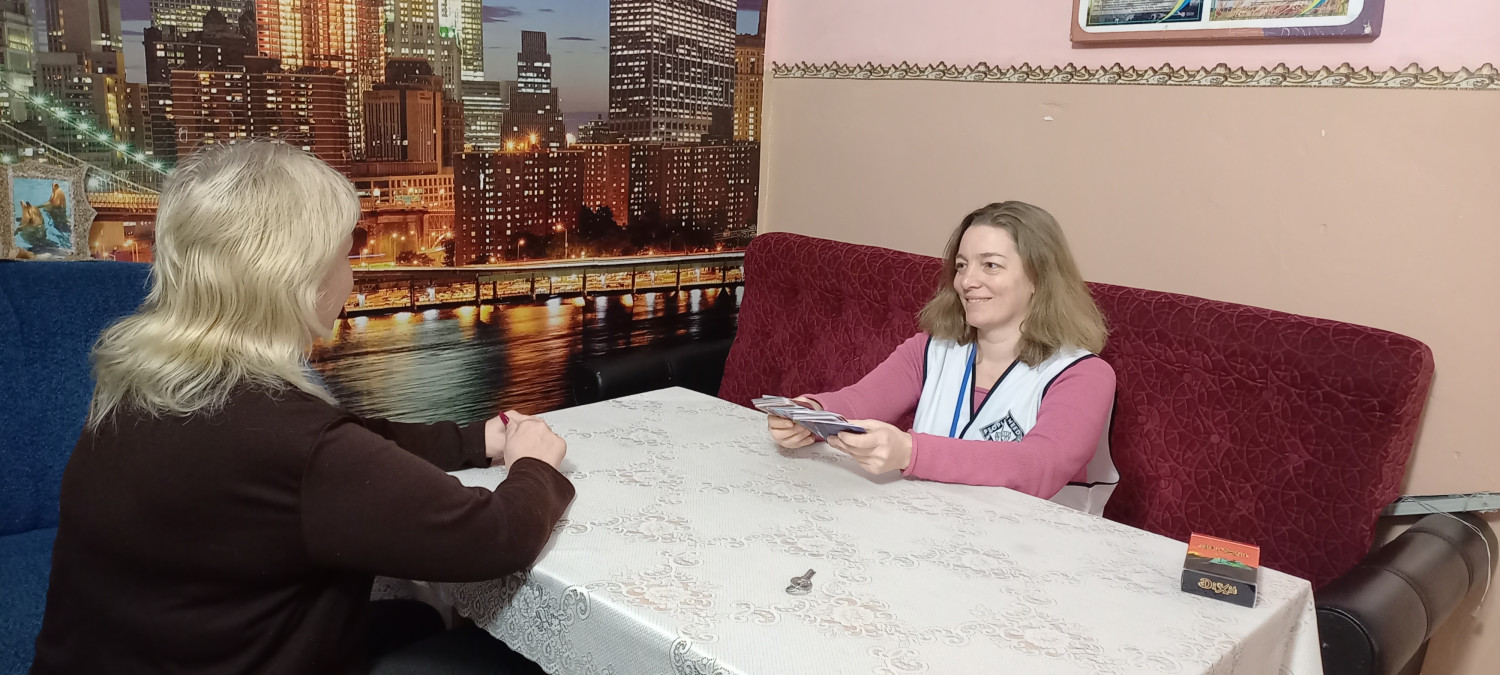An opportunity to effectively help thousands of people who have lost their everyday lives
Published: Jan 10, 2023 Reading time: 3 minutes Share: Share an articleAccording to statistics from the International Organization for Migration, Russia’s invasion of Ukraine has deprived over 7 million people of their homes in the country. Another 4,5 million have left Ukraine for safety abroad. Each of these is an individual who experiences their problems uniquely: these problems manifest themselves precisely in the particular person's physical and mental state.

One such person who had a specific response to the war was Liudmyla Kharchenko, who moved from Kharkiv to Vinnytsia Oblast in the spring. Together with her grandson, husband, and children, she decided to leave their native Mala Danylivka to find safety from constant artillery and air bombardment.
Discussing the bombardment's effects, Liudmyla says it was difficult to endure it any longer. "In my 69 years, I could never imagine surviving such a terrible thing. If someone had told me that I would need the help of psychologists once, I would probably have laughed. But I could neither sleep nor talk. It was so difficult for me to walk, and after I moved, my legs became immovable," – says Liudmyla.
Liudmyla recounts how she had to leave her mother behind as she refused to leave her own house. Through communication with her mother, Liudmyla learned that her home and those of her children had been damaged. That is why the family dreams of returning home in the spring. They hope to be able to fix the windows and cover the roofs.
Thanks to funding from the Swiss Agency for Development and Cooperation (SDC), our psychologists are visiting centres for internally displaced persons in Vinnytsia Oblast. According to our psychologists, they have an opportunity to effectively help thousands of people who have lost their everyday lives. To facilitate the free expression of their feelings, communication takes place directly in the rooms of the beneficiaries in a non-judgemental, peaceful atmosphere.
Larysa, Liudmyla’s daughter, also receives psychological support. Larysa has worked in justice for years, but after the New Year, she became unemployed, noting:
"I am facing a challenging period, because I will remain unemployed and I will have to look for something here. I cannot go to work at home. I am terrified to go home."
Larysa said that her twenty-five-year-old son has already started working as a driver in Vinnytsia, and her husband found a job in a local construction company. Still, she faces a lack of opportunities due to her profession's specifics.
According to Tatiana Bochkova, a psychologist with People in Need, the fears that the family members brought with them to Vinnytsia have changed their behaviour. Any step, any word, could cause uncontrollable panic attacks. But thanks to the help of psychological specialists, the conditions of Larysa, Liudmyla, and many others, are returning to normal.
One of the techniques used by psychologists is metaphorical cards. Thematic collections of images trigger an associated series of memories in the participant; then, the specialist helps work through the related emotions and overcome psychological trauma. Olena Boronilo, who recently celebrated her 57th birthday, found the strength to take a new path by searching for associative answers with the help of a psychologist. Although she has no concrete plans, she understands that the war is not an excuse for inactivity. At home, in Bakhmut, Olena worked at a factory for 27 years. She has always loved stability. But now she has realised how important it is to adapt to the circumstances.
Our psychologists say that their work will continue after the war and will be even more meaningful. After all, when people begin to return home, their traumas will manifest with renewed vigour.



